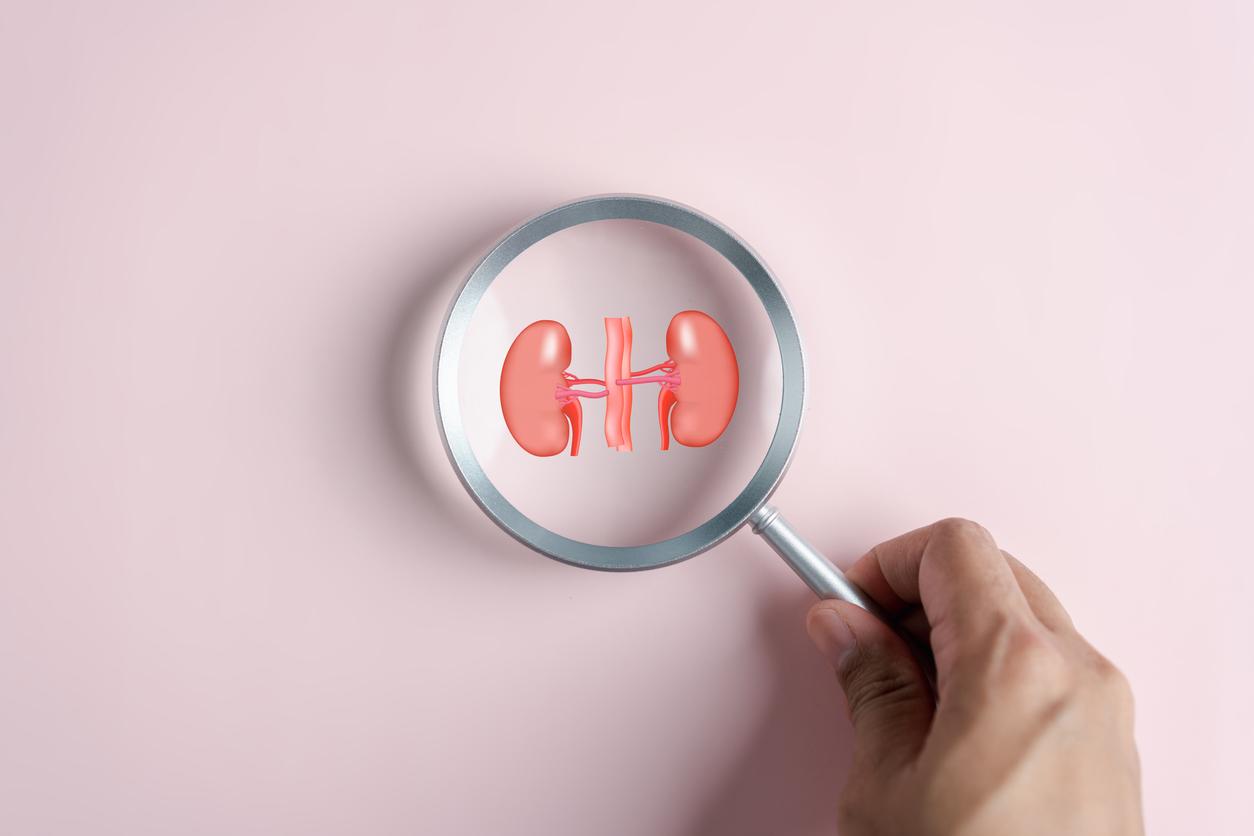As the number of kidney cancers increases in France, here is a summary of everything you need to know about this disease.

- “The evolution of the number of cases since 1990 shows a trend towards an increase in the incidence of kidney cancer in men and women,” says Professor Olivier Moranne, nephrologist at Nîmes University Hospital.
- Kidney cancer may not cause any symptoms in the very early stages of the disease, as they often appear as the tumor grows into nearby tissues and organs.
- Kidney cancer is most often treated with surgery when it is localized or locally advanced.
The Nîmes University Hospital, France Rein Gard Lozère association and the Health Aid Foundation have joined forces to raise awareness about kidney cancer.
“A trend towards increasing incidence of kidney cancer”
“The most common renal tumors are renal parenchymal tumors and renal cell carcinoma, which account for 85% of cases,” First, the three institutions are highlighted. “65% of kidney cancers are diagnosed at a localized stage and most often by chance”, they add.
“Each year in France, kidney cancer affects around 15,000 people and is the cause of more than 5,500 deaths. It is the seventh most common cancer,” also indicates Professor Olivier Moranne, nephrologist at the Nîmes University Hospital.
“The evolution of the number of cases since 1990 shows a trend towards an increase in the incidence of kidney cancer in men and women,” he continues.
What are the symptoms of kidney cancer?
Symptoms of kidney cancer include: blood in the urine (hematuria); pain in the back and side of the abdomen; mass that can be felt in the abdomen; swelling of the legs and ankles; high blood pressure; low red blood cell count (anemia); fatigue ; night sweats ; weightloss ; loss of appetite ; fever ; in humans, large swollen vein in the scrotum (varicocele).
Kidney cancer may not cause any symptoms in the very early stages of the disease, as they often appear as the tumor grows into nearby tissues and organs.
Kidney cancer: what are the risk factors?
Kidney cancer can be promoted by certain risk factors such as: fsmoking, being overweight, having high blood pressure, being a carrier ofSome inherited genetic disorders, suffering from aend-stage renal failure, being in ccontact with trichloroethylene (TCE) at work; have a glarge size in adulthood.
Kidney cancer: diagnosis and treatments
“Two types of tests are necessary to accurately establish a diagnosis of kidney cancer: imaging tests and an anatomo-pathological examination of all or part of the tumor,” adds the Arc foundation.
Kidney cancer is most often treated with surgery when it is localized or locally advanced. “When the cancer has formed metastases, the treatment is based on targeted therapy drugs and immunotherapy, combined or not with surgery,” noted the National Cancer Institute.
What are kidneys for?
The kidneys are located under the ribs on either side of the spine (and not in the lower back as many popular expressions suggest). This organ ensures the filtration of blood and the evacuation of body waste via urine. It is also responsible for many elements essential to the stability of our organism.
“We usually have two kidneys, but it is possible to live a completely normal life with just one,” ends the France Rein association.
















